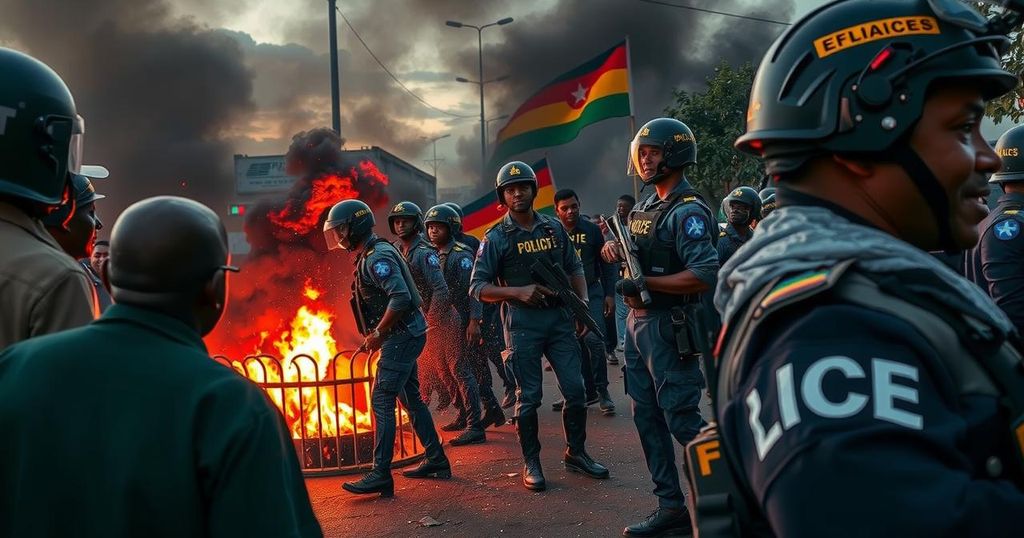Mozambique is experiencing severe unrest following the October 9, 2024 elections, where the ruling Frelimo party maintained power amidst allegations of electoral fraud. Protests in Maputo and other cities have resulted in violent confrontations with police, leading to numerous casualties. Opposition leaders are urging continued demonstrations against the administrations, reflecting deep-seated discontent and aspirations for change in the political landscape.
Mozambique is currently engulfed in widespread protests and violent clashes following the results of the October 9, 2024 presidential election, which saw the ruling party, Frelimo, extend its 49-year rule. The opposition has accused Frelimo of electoral fraud, leading to nationwide demonstrations met with severe police repression. Despite the grim situation, calls for continued protests emerge from opposition leaders like Venancio Mondlane, refraining from complacency in their struggle against what they perceive as a fraudulent regime. In the capital, Maputo, protesters have been obstructing streets, engaging police who have resorted to tear gas and rubber bullets, resulting in at least 20 reported deaths, with unofficial sources suggesting the toll may exceed 50. Amid the unrest, South Africa has temporarily closed its border with Mozambique, increasing security as violence escalates. Frelimo’s candidate, Daniel Chapo, previously declared the winner of the election, faces intense scrutiny and allegations of vote manipulation from both local and international observers. The constitutional body overseeing the election has been criticized for failing to address reported irregularities, including altered vote counts and biased polling staffing. The consequences of these electoral grievances are particularly pronounced as some opposition figures have been assassinated, heightening fears and tensions around the protests. These events unfold in the context of Mozambique’s historical challenges, including a civil war legacy and ongoing insurgency issues, accentuating the complexities surrounding the current electoral discord.
The political climate in Mozambique has become increasingly volatile, particularly in light of the recent presidential elections that took place on October 9, 2024. The Frelimo party, which has held power since the nation’s independence in 1975, once again emerged victorious, provoking accusations of electoral fraud and resulting in widespread protests. This situation is exacerbated by historical grievances of violence and civil unrest, alongside recent assassinations of opposition figures that have incited further public dissent. As such, Mozambique is facing not only political upheaval but also a societal struggle against perceived authoritarianism upheld by long-standing political structures.
In conclusion, the post-election turmoil in Mozambique illustrates significant unrest against a backdrop of perceived electoral fraud, resulting in violent crackdowns by police and heightened tensions within the societal fabric. The opposition’s call for continued resistance underscores a growing dissatisfaction with Frelimo’s governance, which has endured for decades. The nation’s future remains uncertain as protests continue to evolve and demand reform from a government accused of undermining democratic processes.
Original Source: apnews.com






